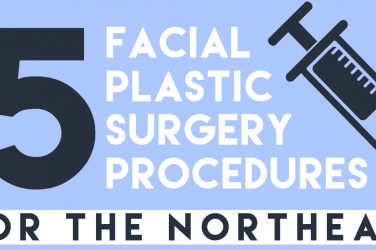Is Laughter the Best Medicine? If you have a choice, yes!
The film Goodfellas, directed by Martin Scorsese, offers viewers a narrow window into the psychological and social dynamics of organized crime. Beyond its entertainment value, the movie presents themes that can be analyzed through the lens of mental health. These mental health themes and societal issues, experienced and displayed by its characters, will be explored. We will examine the mental health implications at both the individual and societal levels, discussing identity, trauma, sociopathy, addiction, and the impact of violence, loyalty, and isolation within the context of organized crime, its cost to society, and impact on youth.
00:15:07 pic.twitter.com/CVjvKR9ELa
— Every Goodfellas Second (@everygoodfella) June 11, 2023
- Identity and Belonging
Henry Hill’s Journey: Henry’s narration reveals an internal struggle with identity as he oscillates between admiration for the mob’s “family” culture and recognition of its destructiveness. For individuals in communities bound by violence and crime, identity often becomes inseparable from the group, creating a deep sense of belonging that comes at a high cost.
Psychological Consequences of ‘Being Made’: The concept of being “made” illustrates the seductive appeal of belonging to an exclusive group, complete with privileges, respect, and protections. Clinically, this could be understood as group validation, where individuals sacrifice personal integrity for social acceptance. This often leads to cognitive dissonance as characters rationalize their criminal actions for the sake of social standing.
- Sociopathy, Antisocial Behavior, and Narcissism
Tommy DeVito’s Sociopathic Tendencies: Tommy, one of the film’s most volatile and fan-favorite characters, displays traits associated with Antisocial Personality Disorder (ASPD), such as impulsivity, aggression, lack of remorse, and charm used to manipulate. His unpredictable violence, like killing a bartender over a minor slight, demonstrates a disregard for societal rules and the well-being of others.
Narcissistic Traits: Many characters, especially Jimmy and Tommy, display narcissistic tendencies, seeing others as tools to elevate their status. Narcissism becomes adaptive within organized crime, where personal power and dominance are necessary for survival. This environment promotes and even rewards narcissism, creating a cycle where empathy is continually eroded.
- Trauma and PTSD
Vicarious and Direct Trauma: Repeated exposure to violence results in a desensitization that mirrors how trauma accumulates. Characters like Henry witness or participate in traumatic events, leading to symptoms of Post-Traumatic Stress Disorder (PTSD), including emotional numbness, hypervigilance, and moral injury. The absence of conventional coping mechanisms means symptoms remain untreated, leading to maladaptive strategies like substance use.
Moral Injury: Henry’s internal conflict about his lifestyle and ultimate betrayal of his peers can be seen as moral injury, a psychological burden where one’s actions conflict with core ethical beliefs. This suggests unresolved internal conflict and potential trauma symptoms.
- Addiction and Substance Abuse
Henry’s Cocaine Addiction: Henry’s descent into drug addiction parallels his moral decay, with increasing substance dependence reflecting his mental and emotional unraveling. Substance abuse in the film serves as a coping mechanism to numb the psychological toll of crime and violence but ultimately exacerbates Henry’s loss of control.
Societal View of Substance Abuse in Crime: Goodfellas mirrors societal stigmas around addiction, portraying mob members’ substance use as both a personal failing and a tool of the trade. Clinically, this highlights the need to understand addiction as a systemic issue within high-stress environments.
- Violence, Loyalty, and Desensitization
Desensitization to Violence: Frequent, normalized violence is a staple of the mob world, and characters’ casual treatment of brutality reflects emotional numbing, a symptom often seen in those who experience repeated trauma.
Loyalty and Coercive Control: Loyalty is both the mob’s backbone and its Achilles’ heel, enforced through fear and coercion rather than genuine respect or affection.
Henry’s eventual betrayal reflects the unsustainable nature of this loyalty, as he ultimately chooses self-preservation over group allegiance.
- Impact on Family and Relationships
Karen’s Trauma and Role as a ‘Mob Wife’: Karen Hill represents the psychological impact of being tied to the mob without direct participation. Her initial attraction to Henry’s power and wealth transitions into fear, anxiety, and complicity. Karen’s moral descent speaks to Stockholm syndrome and trauma bonding.
Generational Impact and Cycles of Violence: Goodfellas depicts crime as a hereditary fate. Henry’s indoctrination into the mob as a young boy and his role as a father reflect the transgenerational transmission of trauma.
00:13:43 pic.twitter.com/5tOjyekj8K
— Every Goodfellas Second (@everygoodfella) June 8, 2023
- Societal Implications
Normalization of Criminal Culture: The appeal and cultural impact of Goodfellas reflect society’s complex relationship with crime and violence. On one hand, the film glamorizes the mob’s wealth and power. On the other, it critiques the moral and psychological decay inherent in such a lifestyle.
Societal Stigma and Mental Health: Society often stigmatizes those involved in organized crime, not only for their actions but for psychological issues arising from that lifestyle. Goodfellas reminds us of the importance of destigmatizing mental health and recognizing the environmental factors contributing to psychological distress.
Nuts and Bolts: Goodfellas as a Mirror and a Critique
Goodfellas serves as both a tale of psychological unraveling and a societal critique, highlighting how organized crime traps individuals in cycles of trauma, addiction, and identity struggles. The film illustrates the mental health toll of violence, betrayal, and criminal identity, showing that the lifestyle’s allure is ultimately unsustainable and destructive.
In a broader societal context, the film calls attention to our fascination with crime, challenging viewers to question why we romanticize such dangerous lifestyles and what this reveals about cultural perceptions of power, loyalty, and identity.
For mental health professionals, Goodfellas is a case study in understanding how group dynamics, identity fusion, trauma, and addiction shape behaviors in high-
stress environments, further emphasizing the need for compassionate, systemic approaches to treating trauma and addiction.
Through its exploration of criminal psychology and the human psyche, Goodfellas provides valuable insights into the costs of living within a morally ambiguous, high stakes world where loyalty and betrayal are two sides of the same coin.
The game evolves from generation to generation, but the themes and costs remain the same.
Summary (Spoiler Alert)
Goodfellas is a classic film revolving around the experiences of Henry Hill, Tommy DeVito, and other characters entrenched in the organized crime world of the 1970s and 1980s. Central to the narrative is Henry Hill, who details the allure and camaraderie of the criminal lifestyle, contrasting it with the mundane existence of law-abiding citizens.
The dialogues reveal their code of loyalty, respect, and retribution, establishing the intricate hierarchies within organized crime. Henry’s internal conflict captures the thrill of their lifestyle alongside its brutality, portraying a world where actions dictate reality, and respect is maintained through fear and loyalty, often leading to fatal outcomes.
Best Goodfellas Quote
This iconic scene is my favorite. The tension is palpable even decades later, highlighting the duality of humor and threat in mob interactions, as humor becomes a means of asserting power, keeping others off-balance, and testing loyalties. It has both suspenseful and darkly comedic elements, embodying the precarious nature of life within the mob, a life where even laughter is laden with risk.
In this case, laughter may just be the best medicine!
Henry Hill and Tommy DeVito
Henry Hill: “You’re a pistol, you’re really funny. You’re really funny.” Tommy DeVito: “What do you mean I’m funny?”
Henry Hill: “It’s funny, you know. It’s a good story, it’s funny. You’re a funny guy.” [laughs]
Tommy DeVito: “What do you mean, the way I talk? What?”
Henry Hill: “It’s just, you know… you’re just funny. It’s… funny, you know, the way you tell the story and everything.”
Tommy DeVito: [it becomes quiet] “Funny how? What’s funny about it?” Anthony Stabile: “Tommy, you got it all wrong.”
Tommy DeVito: “Oh, oh, Anthony. He’s a big boy, he knows what he said. What did you say? Funny how?”
Henry Hill: “Just…”
Tommy DeVito: “What?”
Henry Hill: “Just… you know… you’re funny.”
Tommy DeVito: “You mean, let me understand this. Maybe it’s me, I’m a little messed up, but I’m funny how? Like I’m a clown, I amuse you? I make you laugh, I’m here to amuse you? What do you mean funny? Funny how? How am I funny?”
Henry Hill: “Just… you know, how you tell the story, what?”
Tommy DeVito: “No, no, I don’t know, you said it. How do I know? You said I’m funny. How am I funny? What’s so funny about me? Tell me, what’s funny!”
Henry Hill: [long pause] “Get the fuck out of here, Tommy!”
Tommy DeVito: [everyone laughs] “You motherfucker! I almost had him. I almost had him. You stuttering prick. Frankie, was he shaking? I wonder about you sometimes, Henry. You may fold under questioning.”
About Arjun Viswanathan, PMHNP-BC, MBA
 Psychiatric Provider in Private Practice and Founder of 247Mental.com
Psychiatric Provider in Private Practice and Founder of 247Mental.com
Arjun Viswanathan is a Board-Certified Psychiatric-Mental Health Nurse Practitioner and Columbia University graduate with an MBA, specializing in ADHD, anxiety,
depression, mood disorders, PTSD, and addiction. He combines psychotherapy, alternative medicine, and tailored medication management for each client.
With over a decade of experience, Arjun has traveled to five continents, spoken at Harvard, and served as captain, MVP, and 1st singles Division 1 athlete, even being invited to compete in the French Open. He brings his background in leadership and competitive athletics to coaching high school and college prep students, especially those aiming for NYC prep schools and Ivy League universities. Arjun has also consulted with former agents of the FBI, NYPD, surgeons, and professional athletes to create customized mental strength plans. Learn more at 247Mental.com.
Arjun integrates art, music, sports psychology, and innovative techniques—including Vision Pro technology and therapy animals—into his work. Known for his humor and his “too many” emotional support animal (ESA) letters, he engages teens and adults with ADHD in developing executive functioning skills and treats patients and resides in New York.
Arjun’s approach is both easygoing and data-driven, emphasizing teamwork with clients. He’s dedicated to creating truly individualized care, building a foundation for lasting mental wellness.







